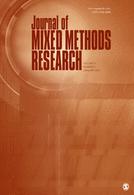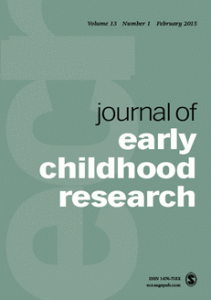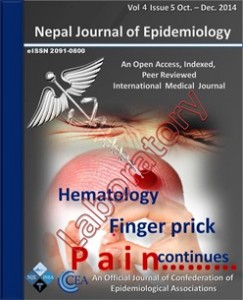The following funding opportunities have been announced. Please follow the links for more information.
Arts and Humanities Research Council, GB
The Arts and Humanities Research Council invites applications for its short-term fellowships at the Harry Ransom Center under the international placement scheme, Fellowships allow the recipient to undertake research at the Harry Ransom Center at the University of Texas. The centre specialises in literature, photography, film, art and the performing arts, and is dedicated to advancing the study of the arts and humanities by acquiring, preserving and making accessible original cultural materials. Applicants must be resident in the UK and be one of the following: doctoral students who are enrolled at an approved UK research organisation and receive AHRC fees or full funding for their PhD; doctoral-level research assistants who have a PhD or equivalent research experience; early-career researchers, who must have a contract of employment with an approved UK research organisation and who may either be within eight years of the award of their PhD or equivalent professional training, or within six years of their first academic appointment. Placements last two to three months and may be taken between 1 September 2016 and 31 May 2017. Fellowships are worth up to £750 towards travel, coverage of visa costs and include a monthly allowance of £1,200. Fellows also receive a shared office space as well as access to the collections, resources, facilities, curators and other scholars at the centre and at the university. Networking and collaborating opportunities are also available.
Maximum award: Not specified. Closing date: 4pm, 21/01/16.
AXA
The AXA Research Fund invites applications for its chairs programme. The scheme aims to create an academic full time position in the host institution and at encourage a step change in the career of the appointed AXA professor, whilst promoting scientific excellence, innovative and groundbreaking research relevant beyond the borders of the institutions geographic location. The focus areas are: environmental risks including climate change, natural hazards and human-driven environmental changes; life risks including ageing, biomedical risks and addictions and risky behaviours; socio-economic risks including geopolitical risks, macro-economic and systematic financial risks, individual and collective behaviours when facing uncertainties and large corporate risks. There are two types of chairs; the AXA chair position, held on a long term basis by an individual chair holder, and the AXA successional chair programme, where the endowment will serve to support a series of temporary short term appointments. The proposed chair holder must have at least 10 years of experience since receiving his or her PhD. The schemes is tenable from five to 30 years and long term partnerships are favoured by the AXA scientific board. The grant for the AXA chair position is €90,000 to €120,000 a year and the successional chair grant is €80,000 to €90,000 a year. Funding is expected to cover salary for the chair holder, but can also be used on PhD and postdoc expenses, equipment and costs incurred while attending academic and public engagement activities.
Maximum award: Not specified. Closing date: 12pm (Paris time), 04/12/15.
Bank of England, GB
The Bank of England invites applications for the Houblon-Norman and George fellowships, which promote research into, and disseminate knowledge and understanding of, the working, interaction and function of financial business institutions in Great Britain and elsewhere, and the economic conditions affecting them. These are full-time Fellowships (between one month and one year) and will be on an economic or financial topic studied with particular advantage to the Bank of England. The trustees will pay particular regard to the relevance of the research to current problems in economics and finance. Senior fellowships will be awarded to distinguished research workers who have established a reputation in their field. Fellowships are also available to younger postdoctoral or equivalent researchers. The total amount distributed in any one year will not normally exceed £120,000. A further allowance may be made to cover travel expenses or other costs incurred.
Maximum award: Not specified. Closing date: 01/11/15.
Biotechnology and Biological Sciences Research Council, GB
The Biotechnology and Biological Sciences Research Council invites applications for its stand-alone LINK programme. This supports pre-competitive research projects that address any topic within the council’s remit, and where industry contributes funding. Applications should be made to the following committees according to the research topic: research committee A – animal disease, health and welfare; research committee B – plants, microbes, food and sustainability; research committee C – genes, development, science, technology, engineering and mathematical approaches to biology; research committee D – molecules, cells and industrial biotechnology. Teams must include at least one company, (preference will be given to small and medium-sized enterprises), and one science-based partner. Principal applicants must be resident in the UK and hold an academic staff appointment, at the lecturer level or equivalent, at a higher education institution, research council institute or a BBSRC approved research organisation. Company partners should be registered in the UK or have a UK research and development or manufacturing site. Where a suitable company cannot be found in the UK, an overseas company may be used. Industry partners must contribute in cash at least 50%of the fEC of projects.
Maximum award: Not specified. Closing date: 13/01/16.
The Biotechnology and Biological Sciences Research Council invites applications for its new investigator scheme, which helps early-career researchers to secure their first major element of research funding. Applications should be made to the following committees according to the research topic: research committee A- animal disease, health and welfare; research committee B evaluates – plants, microbes, food and sustainability; research committee C – genes, development, and science, technology, engineering and mathematics approaches to biology; research committee D – molecules, cells and industrial biotechnology. Applicants should be newly employed university lecturers, fellows at the lecturer level whose awards were secured in open competition, or researchers in research council institutes at the unified research council band E or its equivalent. Applicants must not have more than three years of full-time employment at lecturer or equivalent level. They must not have received competitive research funding as a principal investigator from any source that included postdoctoral research assistant staff support costs.
Maximum award: Not specified. Closing date: 4pm, 13/01/16.
The Biotechnology and Biological Sciences Research Council invites proposals for its tools and resources development fund programme call one. The aim of this call is to pump prime the next generation of tools, technologies and resources required by bioscience researchers within BBSRC’s remit. The fund will support small or short-duration pump priming projects, enabling excellent bioscience; encourage development of novel tools, technologies and methods within BBSRC’s remit; underpin research in BBSRC’s strategic priorities and the wider biosciences. Proposals should demonstrate collaborative connections with interdisciplinary and multidisciplinary approaches and must be relevant to the output of new biological knowledge. Types of proposals eligible are: early concept, exploratory investigations of new tools, technologies and resources. The key feature of a successful ‘early concept, exploratory’ research project application is a technology or methods oriented approach that is enabling and adventurous, and encapsulates the concept of ‘high-risk/high reward’. Funded projects are expected to test the ‘high-risk, high reward’ concept and, where successful, demonstrate proof-of-principle’; rapid access to, and novel deployment of, the very latest cutting edge technology. It is anticipated that these proposals would include collaboration with the technology provider; radical, novel modifications to existing tools, technologies and resources to facilitate new biological understanding and an expansion in use.
Maximum award: £150k. Closing date: 4pm, 04/11/15.
The Biotechnology and Biological Sciences Research Council and the State of São Paulo Research Foundation (FAPESP) invite applications for their joint research funding. This supports applications that cut across national boundaries and involve international collaborative teams. Proposals may be submitted in any area of science within the remit of both supporting organisations.
Maximum award: Not specified. Closing date: 4pm, 13/01/16.
The Biotechnology and Biological Sciences Research Council invites applications for its industrial partnership awards. These support science-led research projects that address any topic within the council’s remit, and where industrial partners contribute in cash funding. Applications should be made to the following committees according to the research topic: research committee A – animal disease, health and welfare; research committee B – plants, microbes, food and sustainability; research committee C – genes, development, and science, technology, engineering and mathematics approaches to biology; research committee D – molecules, cells and industrial biotechnology. Principal applicants must be resident in the UK and hold an academic staff appointment, at the lecturer level or equivalent, at a higher education institution, research council institute or a BBSRC approved research organisation. Company partners should be registered in the UK or have a UK research and development or manufacturing site. Where a suitable company cannot be found in the UK, an overseas company may be used. Industrial partners must contribute in cash at least 10 per cent of the full economic cost of projects.
Maximum award: Not specified. Closing date: 4pm, 13/01/16.
The Biotechnology and Biological Sciences Research Council and Science Foundation Ireland invite applications for their joint research funding. This supports applications that cut across national boundaries and involve international collaborative teams led by researchers from the UK and the Republic of Ireland. The scope of pertnerships is restricted to research projects, including technology development projects but excluding embryonic stem cell research. Principal applicants must be resident in the UK and hold an academic staff appointment, at the lecturer level or equivalent, at a higher education institution, research council institute or a BBSRC-approved research organisation. Irish co-investigators must be based at a research body which is eligible for SFI support, they must be members of the academic staff of an eligible research body, and must have the capability and authority to mentor and supervise postgraduate students and team members.
Maximum award: Not specified. Closing date: 4pm, 13/01/16.
British Council, GB
The British Council, invites expressions of interest for its UK-Iran researcher links workshop on water management. This workshop wll bring together early career scholars and experienced researchers from the UK and Iran to discuss water management with subthemes of hydrology, extreme events, agriculture and food security, climate change, and water management/policy. participants will share their knowledge and build links for future collaboration. There will also be sessions on finding and applying for funding opportunities. Applicant must hold an academic position in the UK or Iran; have been awarded their PhD no earlier than January 2005; be able to evidence that their publications and awarded degree are relevant to the workshop themes; be proficient in English to level 6 IELTS (Iranian applicants). Visa, travel, subsistence and accommodation costs will be covered.
Maximum award: Not specified. Closing date: 15/10/15.
Engineering and Physical Sciences Research Council, GB
The Engineering and Physical Sciences Research Council invites outline proposals for its future manufacturing research hubs. The hubs will address major, long-term challenges facing manufacturing industries and capture opportunities from emerging research areas. Each hub can receive up to £10 million over seven years, to support a programme of innovative research in the engineering and physical sciences, related to the challenges in commercialising early stage research. The Hubs will feature high quality, multidisciplinary research, strong engagement with relevant manufacturing industries, and will take a leadership role in their national network. Each programme must: draw on advances in underlying science and technology; focus on the design and development of new and existing manufacturing processes, systems and networks; explicitly consider the pathway to manufacture. Funding can be used as platform research funding, grand challenge research funding, operational funding, or pathways to impact and commercialisation activities. Funding may also cover equipment costs.
Maximum award: £10m. Closing date: Outline proposals by 4pm, 19/11/15. Invited full proposals late March.
Research Councils UK and Innovate UK invite expressions of interest for their call on urban living partnership – pilot phase. This call will promote integrated research and innovation to address challenges in urban areas of the UK and help them realise their visions for future urban living. Partnerships will bring together the capabilities needed to address a wide range of challenges in areas such as infrastructure and environment; crime and social inclusion; health and wellbeing; heritage and culture; economy and employment; smart cities and big urban data. Consortia can include cross-disciplinary research expertise, city leaders, businesses, civic organisations and community groups, public, third sector and other urban innovators. Each of the consortia will be expected to conduct an initial pilot diagnostic phase focused on building integrated understanding of the challenges, opportunities and future visions of a specific UK city / urban area and developing agendas for future research and innovation.
Maximum award: £400k. Closing date: EOI 26/11/15. Full applications by 4pm, 21/01/16.
European Railway Agency, EU
The European Railway Agency invites tenders to conduct a study on implementation of fees and charges in the framework of the fourth railway package. The tenderer will: collect and analyse data with a view to establishing a framework for fees and charges; propose models for financial apportioning between the ERA and the national authorities; establish a list of criteria for differentiating fee structure, with special attention given to small and medium-sized enterprises. Legal and natural persons based in EU member states are eligible and must apply as a joint venture or consortium with a nominated leader.
Maximum award: €120,000 and €150,000 over six months. Closing date: 31/10/15.
Horowitz Foundation for Social Policy, US
The Horowitz Foundation for Social Policy invites applications for its research grants. Grants are awarded for work in major areas of the social sciences, including anthropology, area studies, economics, political science, psychology, sociology and urban studies, as well as newer areas such as evaluation research. Preference will be given to projects that deal with contemporary issues in the social sciences and issues of policy relevance. Phd candidates whose projects have received approval from their appropriate department head or university are eligible to apply.
Maximum awarrd: US$7,500. Closing date: 31/01/16.
Innovate UK, GB
Innovate UK and the Department for Culture, Innovation and Media invite applications for the nuisance calls competition. The competition aims to address and find solutions for the problem of nuisance calls, especially to vulnerable members of society who are at higher risk of financial harm and personal distress. Solutions can use any technology including, but not limited to, any of the following areas: Home- installed equipment that filters and blocks calls, based on Calling Line Identification (CLI) or other techniques; As before but with a “community” or central database to block calls from known “problem sources”; A network level solution that will filter and block calls before they are offered to the end user. Key challenges that bids will need to address are: Blocking/filtering calls as an option where the number is ‘withheld’ or ‘unavailable’, including where these are international in origin; How legitimate callers using networks that present with no CLI are processed, for example gathering a list of legitimate callers (sometimes referred to as ‘whitelists’); How the system can block calls that offer malformed CLI; Whether the system is capable of detecting spoofed but valid CLI; How calls from mobile and non-geographic numbers are handled – i.e. can they be configured as blocked/filtered; How a network level solution can be implemented on existing communication networks.
Maximum award: £50k. Closing date: Registration by 12pm, 04/11/15. Full applications by 12pm, 11/11/15.
Middle East Economic Research Centre, TR
The Middle East Economic Research Centre invites applications and nominations for the Ibn Khaldun prize, whic recognises outstanding individual and co-authored papers by young scientists on Middle East economics. Candidates must be no more than six years post-PhD .Winners of the award receive a certificate, a cash award of $250 and exemption from dues and submission fees for two consecutive calendar years.
Maximum award: $250. Closing date: 10/12/15.
Natural environment Research Council, GB
The Natural Environment Research Council, in collaboration with the Medical Research Council in the UK, and the Earth System Science Organisation, Ministry of Earth Sciences, and the Department of Biotechnology in India, invites initial proposals for the atmospheric pollution and human health in an Indian megacity programme. This aims to provide new knowledge on air pollution issues and impacts on health in a rapidly urbanising society and the evidence to support cost effective measures for health improvements related to atmospheric pollutants in Delhi, India. The programme is split into four themes; emission validation and sources; processes: physical and chemical; exposure validation and health outcomes; mitigations and interventions. Applications must be collaborative between UK and Indian researchers.
Maximum award: Not specified. Closing date: initial proposals 4pm, 10/12/15. Full proposals due early July 16.
Swedish Foundation for Strategic Research, SE
The Swedish Foundation for Strategic Research invites proposals for its industrial research centres, which aim to improve long-term problem- and application driven research centres comprising collaborative research ecosystems between industry, research institutes and academia. Centres should be strategically defined around formulated industrial needs with formidable research challenges. Research problems should be defined and pursued by both the industrial and academic partners. Research centres must be concentrated on disruptive innovation, including new enabling technologies or emerging technology shifts in a long-term perspective.Each centre will have two to five industrial partners, with one to five academic or research institute partners. At least one of the partners must be a department at a Swedish university, which will administer the grant. The main applicant must be a researcher based at a Swedish university or research institute. Partners can be researchers from industry, public authorities, research institutes and university departments. Companies should normally be registered in Sweden or close to Sweden so that the exchange can work practically and be justified strategically for Sweden. Industrial partners may be hospitals if the centre involves clinical research. International partners may participate on their own budget. Industry partners must fund their participation with a combination of in-kind and cash by at least 20 per cent of the total budget of the centre.
Maximum award: SEK100m. Closing date: 2pm CET, 04/05/16.
Wellcome Trust, GB
The Wellcome Trust and the Academy of Medical Sciences invite applications for their springboard awards, which enable UK biomedical scientists to develop their independent research careers. Applicants must be within three years of being appointed their first independent post, hold a current post with salary, not be receiving significant research funding, be supported by the host organisation.
Maximum award: £100k. Closing date: 07/12/15.
The Wellcome Trust invites applications for its collaborative awards in science, supporting teams of independent researchers pursuing problems across the areas of science, humanities and social science and innovation. Interdisciplinary research collaborations between basic scientists or medical and veterinary clinicians, and non-biologists, such as mathematicians, physicists, chemists, engineers and social scientists, are encouraged. Funding may be used for research expenses, travel and subsistence, overseas allowances, research management and support costs. A provision for public engagement costs may also be awarded.
Maximum award: £4m. Closing date: preliminary applications due 05/01/16. Full applications by 13/04/16.
The Wellcome Trust invites applications for its our planet, our health awards. These support high-quality, transdisciplinary programmes of research that investigate novel aspects of, and build evidence for, how complex changes in our environment affect our health. Supported proposals will consider the interplay between different environments, drive collaborative research and lead to outputs with a significant impact on our health. Programmes should use a range of relevant disciplines and research methodologies and may consist of predictive modelling, developing innovative products or processes, policy development or evaluating specific interventions. Proposals from a broad range of disciplines involving cross-sector collaborations are encouraged. Eligible costs include salary costs for research staff, consumables and small equipment costs, travel costs for conferences and research meetings, office support and communication cost.
Maximum award: £10m. Closing date: 29/01/16.
The Wellcome Trust invites applications for its society awards. These support projects that encourage the public to explore biomedical science, its impact on society and culture, its historical roots and the ethical questions that it raises Projects should stimulate interest, excitement and debate about biomedical science and/or the history of medicine; support formal and informal learning; reach audiences of all ages and from all walks of life and inform, inspire and involve them; encourage high-quality interdisciplinary practice and collaborations; investigate and test new methods of engagement, participation and education. Applicants and activities must be based in the UK or the Republic of Ireland and applicants may be mediators, facilitators and practitioners of science communication; science centre or museum staff; artists; educators; film-makers; theatre producers; games developers; public participation practitioners; health professionals; and academics in bioscience, social science, bioethics, and medical history and the humanities.
Maximum award: Not specified. Closing date: 5pm, 11/03/16.
Please note that some funding bodies specify a time for submission as well as a date. Please confirm this with your RKEO Funding Development Officer
You can set up your own personalised alerts on Research Professional. If you need help setting these up, just ask your School’s/Faculty’s Funding Development Officer in RKEO or view the recent blog post here.
If thinking of applying, why not add notification of your interest on Research Professional’s record of the bid so that BU colleagues can see your intention to bid and contact you to collaborate.
 The following funding opportunities have been announced. Please follow the links for more information.
The following funding opportunities have been announced. Please follow the links for more information.






















 SPROUT: From Sustainable Research to Sustainable Research Lives
SPROUT: From Sustainable Research to Sustainable Research Lives BRIAN upgrade and new look
BRIAN upgrade and new look Seeing the fruits of your labour in Bangladesh
Seeing the fruits of your labour in Bangladesh Exploring Embodied Research: Body Map Storytelling Workshop & Research Seminar
Exploring Embodied Research: Body Map Storytelling Workshop & Research Seminar Marking a Milestone: The Swash Channel Wreck Book Launch
Marking a Milestone: The Swash Channel Wreck Book Launch ECR Funding Open Call: Research Culture & Community Grant – Application Deadline Friday 12 December
ECR Funding Open Call: Research Culture & Community Grant – Application Deadline Friday 12 December MSCA Postdoctoral Fellowships 2025 Call
MSCA Postdoctoral Fellowships 2025 Call ERC Advanced Grant 2025 Webinar
ERC Advanced Grant 2025 Webinar Update on UKRO services
Update on UKRO services European research project exploring use of ‘virtual twins’ to better manage metabolic associated fatty liver disease
European research project exploring use of ‘virtual twins’ to better manage metabolic associated fatty liver disease